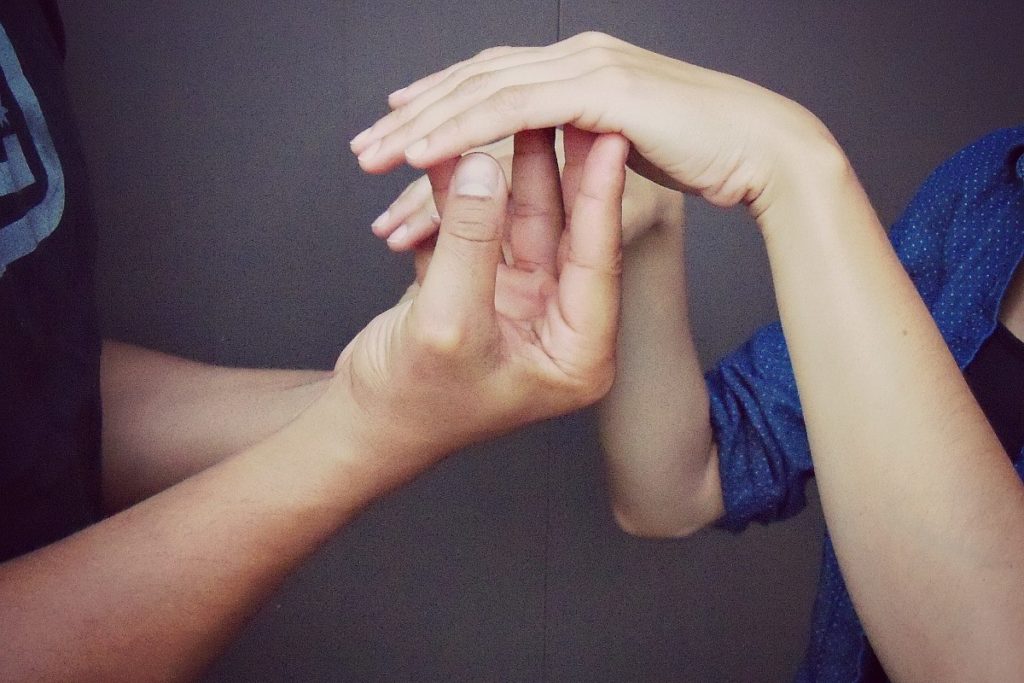
Social isolation or distancing is not a workable solution for thousands of health and social care workers facing the coronavirus.
For example, at the Anne Sullivan Centre for Deafblind, care staff can’t wear gloves. For deafblind people most communication is tactile, hand over hand and touch is everything. “Many of the protocols recommended by Government are just not practical for us to implement,” said their CEO Grace Kelly-Hartnett.
Picture above of Stephen and Thomas using tactile sign language at the Anne Sullivan Centre
Residents usually recognise staff by touch and any protective layer would see them lost and isolated in already challenging circumstances.
The Disability Federation of Ireland, DFI, is pleased to see the Minister for Health, Simon Harris, prioritising support to residential settings this week. Because self-isolation is not an option in settings like Anne Sullivan or for many other organisations which DFI represents.
“We have 120 member organisations who are responding magnificently to this crisis. Their reactions are immediate, as you would expect with work with vulnerable groups. But in the background is an unfolding cash flow crisis as most rely on a mixture of State and fund-raising support and the latter has collapsed,” said Dr Joanne McCarthy, DFI’s Director of Policy.
“The need for a bailout or support package is clear. There are the same set of challenges facing voluntary organisations as faced by our hospitals in maintaining staffing. And our organisations have unique challenges like those faced by Anne Sullivan and others providing home support and Personal Assistance or PA services”.
Internationally, the Council of Europe and European platforms that DFI belong to, have raised concerns. “For millions of persons with disabilities that rely on professional assistance in their homes, this (social isolation) is an impossible situation. Often, the assistance needs to be given in close physical contact with the person – such is the case for carers, personal assistants and deafblind interpreters, to name a few.” – Joint Statement by European Disability Forum, European Network on Independent Living European Deafblind Union
“Most member states rightly imposed social distancing measures to reduce the spread of the virus, but they have not been systematically attentive to the specific circumstances and needs of persons with disabilities. As the UN Special Rapporteur on the rights of persons with disabilities pointed out, “containment measures, such as social distancing and self-isolation, may be impossible for those who rely on the support of others to eat, dress and bathe.” Council of Europe
“Everyone is working flat out across the health services and the voluntary organisations to ensure that nobody is left behind (or without assistance). But in order to continue to pay their bills and stay solvent, a bailout package is now urgently needed for voluntary organisation,” said Dr McCarthy.


